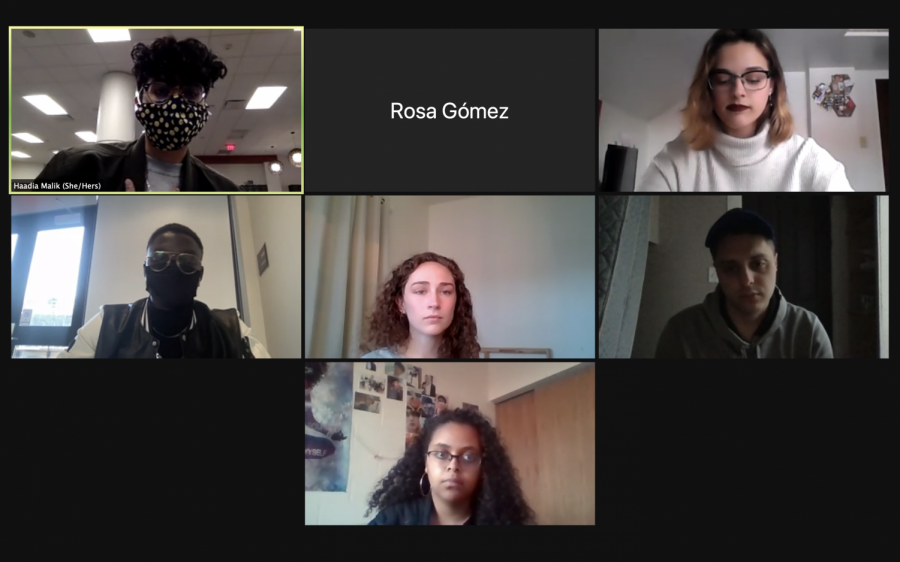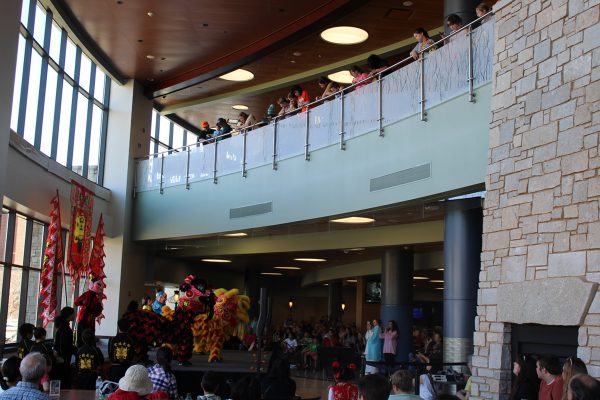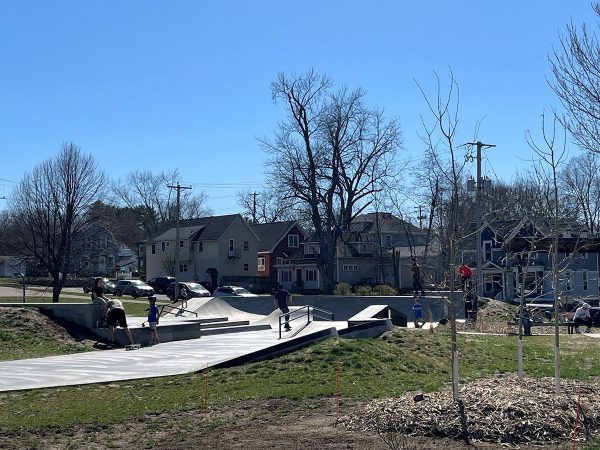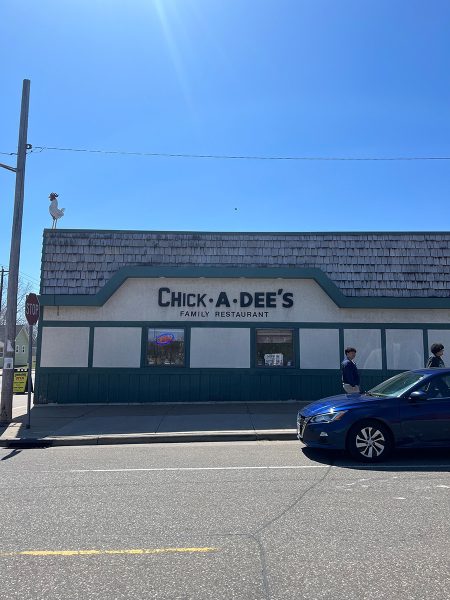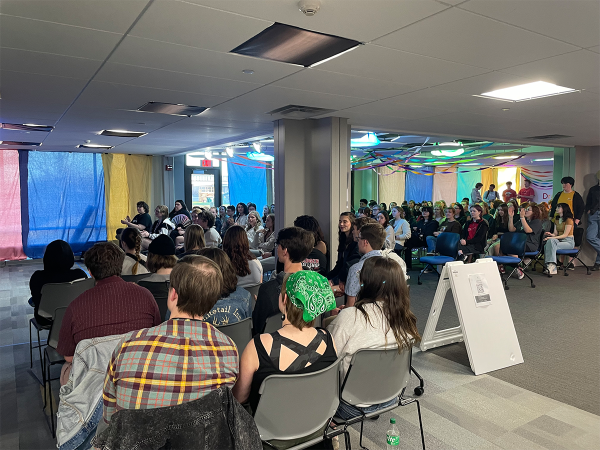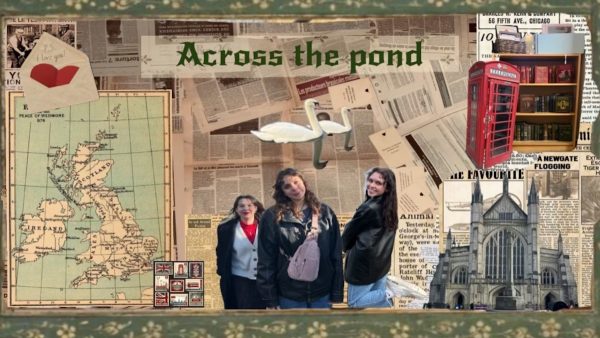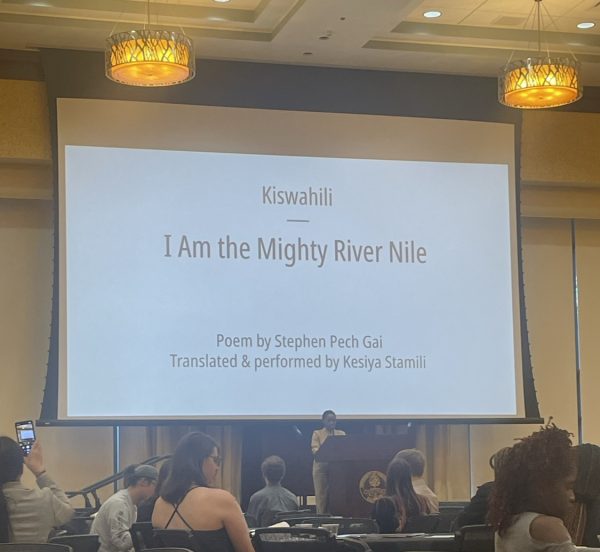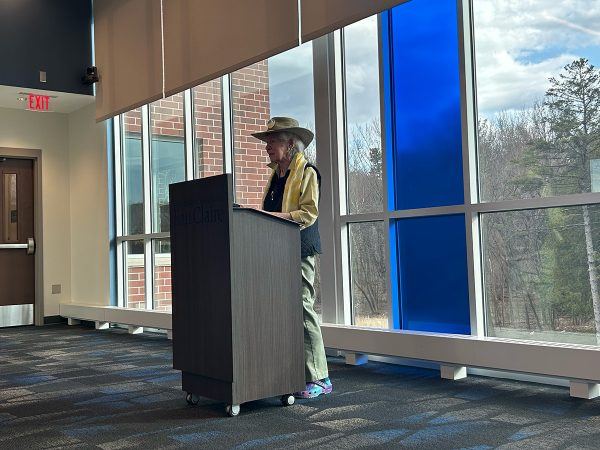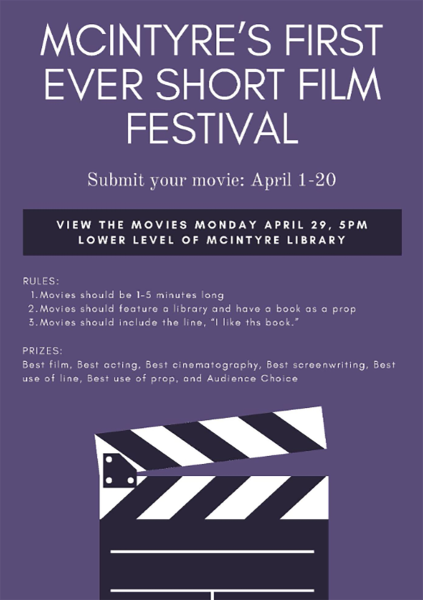First ‘Unpack It’ event of the semester opens with ‘UWEC Through a Minority Lens’
UAC and Equity in Student Matters commission seek to start a conversation about inequality on campus
Photo by Rosa Gómez
UAC and ESM held a virtual “Unpack It” event about life on campus for minority students.
On Thursday, February 25, the University Activities Commission at UW-Eau Claire began the semester’s “Unpack It” series. Co-facilitated with the Equity in Student Matters commission, Thursday’s event was titled “UWEC Through a Minority Lens.”
Avery Hartling, third-year political science student and program director for UAC, said “this discussion series is led by students and seeks to bring students together to discuss important social topics, especially related to inequality.”
She opened the event by laying out initial ground rules, in order to maintain a safe, educational environment. The rules are as follows:
- “Step up and step back.” It is important to not only be heard during this discussion but also to listen to other voices.
- “Commit to learning over debating.”
- “Listen respectfully and without interrupting.”
Haadz Malik, a fourth-year marketing student and director of the Student Senate ESM commission, introduced a video that acquainted event participants with the concept of “single stories.” This highlighted the harms of seeing people through a stereotypical lens and how it limits what people can become.
They transitioned into a discussion where Paul Agbashi, a second-year biology student and student director of the ESM commission, opened the conversation with his experience at UW- Eau Claire as it relates to single stories.
“It just goes to show as a single story –– as an international student and as a Black student on campus –– I’m not the only person experiencing this,” Agbashi said.
They gave participants an opportunity to share what single stories they were subject to and how it impacts their experience at UW-Eau Claire.
Saba Seyoum, a second-year marketing student, shared how Agbashi’s experience resonated with her. Seyoum and Agbashi said they share an experience and feeling of not being considered African American enough.
Seyoum said she felt compelled to share because she wanted to let other people on campus know they are not alone in what they are experiencing. She said that when they come together over their collective experiences, they can stick together.
One area that was highlighted was the intersectionality of individual’s identities.
Malik shared how at UW-Eau Claire, a single story she feels subject to is an expectation to be torn between who she is as a Muslim and her identity as a queer woman.
“This single-story where people who are religious always have this constant struggle between their sexual orientation and their religion,” Malik said.
Malik said she can be a part of both communities and embrace her intersectional identity, but explained how it can be exhausting to always be subject to other people’s single story of you.
“When you’re shown that same story over and over again, it erases the part of people’s identities that don’t need to be mutually exclusive,” Hartling said.
Malik and Hartling said that by having conversations like this, people are able to learn and offer a perspective that is not always heard.
After this discussion, the participants completed a white privilege worksheet. The worksheet had 50 privileges and students checked the box if it applied to them. They compared results and discussed why they think they received the score they did.
Having an understanding of what privileges someone may or may not have is important in order to see someone as a person, and not a single story, Malik said.
It aids in growing awareness for how some people have to navigate through life and how that may impact their experience at UW-Eau Claire, she said.
Hartling said that this type of conversation can help the university begin to address issues surrounding white privilege.
Malik and Hartling’s roles as student representatives is to listen to what students want and bring forth those concerns to the people who have the power to implement those changes, she said.
The next “Unpack It” is “Raise your Voice, Find your Space: Creating an Intersectional Womxn’s Center at UWEC.” The event will be at 5 p.m. on March 16 via zoom and is in collaboration with Womxn Uniting and Fighting.
Gómez can be reached at [email protected]
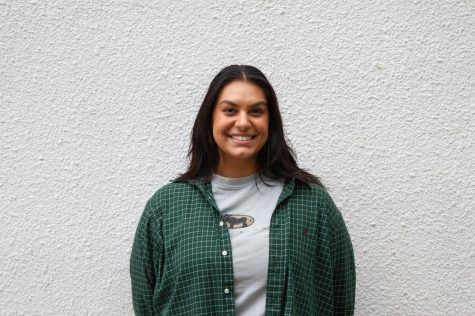
Rosa Gómez is a second-year political science and journalism student. This is her first semester on The Spectator staff. She enjoys rainy days, reading and all things social justice!

